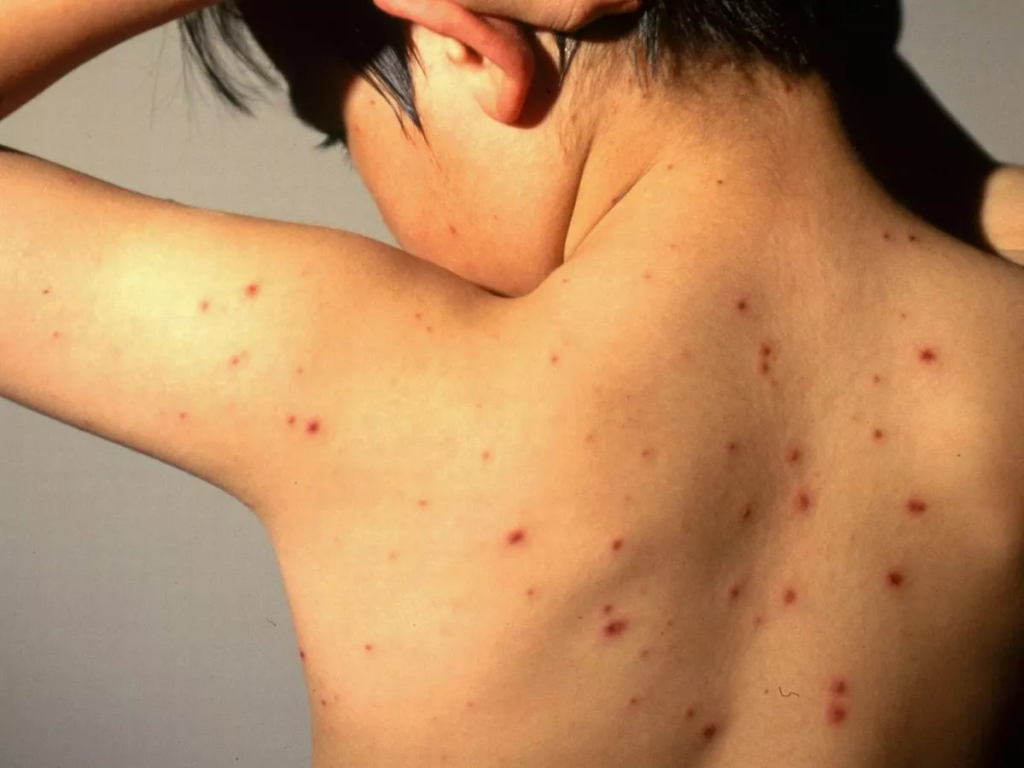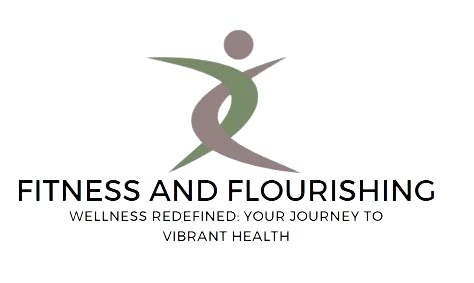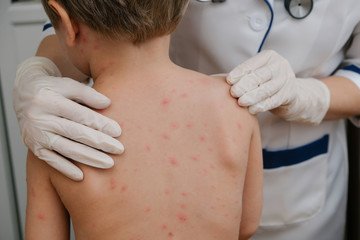Chicken pox, a highly contagious illness that causes an itchy, blistering rash, is a common childhood experience for many. While typically mild, especially in young children, it’s important to understand the symptoms, causes, and treatment options to ensure a comfortable recovery and prevent complications.
What is chickenpox?

Chicken pox is a contagious infection that causes an itchy, blister-like rash. It’s caused by the varicella-zoster virus and was very common before the introduction of the vaccine in 1995. Children are most susceptible, but anyone can get it. The vaccine has dramatically reduced chickenpox cases, with most children now vaccinated as part of their routine immunizations. Having chickenpox once provides immunity, but getting vaccinated is the best way to prevent it altogether.
What are the three stages of chicken pox?
Chickenpox unfolds in a three-act drama on your skin. The first act features red, bumpy blemishes that appear for a few days. Then, the drama intensifies as these bumps transform into fluid-filled blisters in act two, which burst open after a day or two. Finally, the scabs take center stage in act 3, lasting a few days as well. While this three-part show is the overall progression, all the stages can overlap. Imagine new bumps emerging while others are bursting or scabbing over. The entire performance can last up to 10 days, so buckle up for the itchy ride.
Where does chicken pox usually start?
The chickenpox party doesn’t start everywhere at once. It begins with a small, intimate gathering on your face and torso. Then, the fun—or rather, the itch—spreads outward, with new guests arriving on your arms and legs, eventually reaching all the way to your fingertips and toes.
At what age will you get chicken pox?
Thanks to vaccines, chickenpox is less common these days, especially among children in the U.S. But for those who aren’t vaccinated, the usual age range to get it is between 3 and 6 years old.
Why is chicken pox so rare now?
Chickenpox has become a distant memory for many, thanks to the highly effective chickenpox vaccine. This vaccine has dramatically slashed the number of cases, making the once-common illness a rarity.
Symptoms and Causes
What are the symptoms of chicken pox?
Chickenpox usually announces its arrival with a one-two punch: a low-grade fever and fatigue, followed by a headache and stomachache that zaps your appetite. The star of the show, though, is the itchy, blistering rash. It starts small, with red bumps that morph into fluid-filled blisters. These eventually break and scab over, leaving blotchy skin and crusty spots that fade away. While vaccination offers strong protection, it’s not foolproof. Some vaccinated children might experience a mild breakthrough case.
What causes chicken pox?
Chickenpox is on a mission to spread! This culprit is a virus, and just like a sneaky party guest, it jumps from person to person through bodily fluids like coughs and sneezes. But that’s not the only way it gets around – direct contact with the infamous chickenpox rash can also welcome the virus in.
How does chicken pox spread?
Watch out! Chickenpox is like a stealthy visitor for kids. They can catch it at any age, and after exposure, it can take 1 to 3 weeks before they show symptoms. But here’s the tricky part: even though they seem okay, they can spread the virus for a sneaky 1-2 days before the rash appears, all the way until the blisters are crusted over. The virus loves to hitch a ride on coughs, sneezes, or even just contact with an infected child’s fluids.
Who is at risk for chickenpox?
Chickenpox can become your unwelcome guest if you haven’t been vaccinated and haven’t had the illness before. The risk factor gets cranked up even higher if you spend time around children, like at a daycare or school. These are prime grounds for the virus to spread, so be extra cautious if you haven’t gotten your chickenpox defenses up.
What complications are possible with chicken pox?
Chickenpox complications are rare, but they’re a possibility. Skin, blood, and soft tissue infections can arise. In some cases, more serious issues like encephalitis (brain inflammation), Reye’s syndrome (a dangerous liver and brain condition), or pneumonia (lung infection) might develop. Dehydration is another concern. Blood clotting problems and liver issues are also on the potential complication list. While generally mild in healthy children, adults over 18 face a higher risk of severe chickenpox symptoms.
Who is more likely to have complications from chicken pox?
While healthy children typically breeze through chickenpox with mild symptoms, it’s not always sunshine and rainbows. Here’s who needs to be extra careful:
- Babies born to mothers without chickenpox immunity (from prior infection or vaccination)
- Pregnant women who haven’t had chickenpox
- Adults over 18 (yup, grown-ups aren’t immune to icky symptoms)
- People with weakened immune systems due to illness or medication
- Individuals battling cancer or HIV
- Those undergoing chemotherapy
- Organ transplant recipients
For these groups, chickenpox can pack a more serious punch.
Can chickenpox be fatal?
Chickenpox shouldn’t be a cause for panic. Thankfully, deaths are very rare. Most people recover just fine. Even in 2022, the U.S. saw less than 30 deaths and 1,400 hospitalizations from chickenpox. It’s mostly a discomfort to weather, not a life-threatening illness.
Diagnosis and Tests
How is chickenpox diagnosed?
Chickenpox practically wears a neon sign. The rash is so distinctive that doctors can often diagnose it with a simple glance at your child’s skin.
Management and Treatment
How can I help my child with chicken pox?
Chickenpox isn’t a forever friend, but it can be a drag for a week or two. Here’s how to help your little one through it:
- Rest and fluids are key! Let them sleep it off and keep them hydrated to fight the virus.
- The itch is real! To soothe it, try cool compresses, keeping them cool in clothes, and gently patting them dry after baths (no rubbing!). Lotions with antihistamines can also help (ask your pharmacist for recommendations). For extra itch relief, consider over-the-counter antihistamines like Benadryl or Zyrtec.
- Oatmeal baths can be a calming addition to their routine.
- Skip the aspirin! It’s not safe for kids with fevers. Opt for acetaminophen (like Tylenol) if needed. Talk to your doctor for any medication questions.
- A bland, soft diet can be easier on their mouth if they have blisters.
What if my baby gets chickenpox?
Chickenpox is no joke for the tiniest tots (under 3 months old). If your young baby catches it, call their healthcare provider immediately. They need extra attention to fight off this illness compared to older children and healthy adults.
What is the treatment for adults with chickenpox?
Adults with chickenpox generally get the same TLC as children: plenty of rest and fluids to ride out the illness. However, doctors might prescribe antiviral medication in some cases. This is especially true for adults at higher risk of complications, such as those with weakened immune systems or certain medical conditions.
How long is chickenpox contagious?
Chickenpox is like a party pooper who keeps spreading the fun (or itch in this case) until the very end. You’re contagious until all those bumps have turned into scabs. That means any fluid-filled blisters are still a risk for spreading the virus to others.
How many days does it take to recover from chicken pox?
Chickenpox usually goes away after 10 to 14 days.
Prevention
Can my child get a shot to prevent chicken pox?
The good news is, there’s a superhero in a vial to prevent chickenpox – the vaccine! For your little one, the pediatrician will administer it in two doses. The first dose is between 12 and 15 months, and the second happens between 4 and 6 years old. This vaccine often comes as a combo shot called MMRV, protecting against measles, mumps, rubella, and of course, chickenpox. It can also be given as a standalone vaccine. Adults who missed out on chickenpox as kids aren’t left out! If you’re 13 or older and haven’t been vaccinated, you can catch up with two doses at least 28 days apart. The best part? This vaccine is over 90% effective at preventing chickenpox, and since its introduction in 1995, it’s prevented a whopping 91 million cases.
Who shouldn’t get the chicken pox vaccine?
While the chickenpox vaccine is beneficial for many, there are some exceptions. People with allergies to the vaccine or its ingredients, pregnant women, those with weakened immune systems, or individuals with tuberculosis should hold off on getting vaccinated. Additionally, if you’re not feeling well, it’s best to wait until you recover before receiving the vaccine. The same goes for those who have recently had a blood transfusion or another live vaccine.
Prognosis
Can adults get chickenpox if they had it as a child?
When a child gets chickenpox, their immune system springs into action! It produces special proteins called antibodies that target the varicella-zoster virus, the culprit behind the illness. These antibodies act like tiny warriors, battling the virus and helping the child recover. The good news? These champions stick around for life! So, if the person encounters the virus again as an adult, their body is well-prepared. The antibodies will recognize and quickly neutralize the threat, preventing another bout of chickenpox.
Can you get chicken pox twice?
It’s rare for anyone to get chickenpox twice, but it can happen.
What is the oldest you can be to get chickenpox?
Chickenpox doesn’t discriminate based on age! Unlike a playground pass, susceptibility to chickenpox lasts a lifetime. Even adults in their golden years, whether they be in their 80s or 90s, are still at risk if they haven’t had the illness as a child or gotten vaccinated.
When can my child go back to school after chickenpox?
School bells aren’t the only thing ringing after about a week of your child’s chickenpox rash! While the scabs might take some time to fully disappear, the all-clear for school comes once all the blisters have crusted over. That’s because the contagious stage is over when the fluid-filled blisters are gone. So, after 7 to 10 days, your child can return to school without worry of spreading the virus to classmates.
When should you call your healthcare provider if your child has chickenpox?
Uh oh! While chickenpox is usually mild, there are some warning signs to watch for in your child. If you notice a fever or headache that just won’t quit, sores popping up in their eyes, blisters turning nasty with pus, difficulty breathing, a stiff neck, or overall muscle stiffness, or if your child seems unusually drowsy and hard to wake, it’s best to call your doctor right away. These symptoms could indicate a more serious complication, so it’s important to seek medical attention for a proper evaluation and treatment plan.

When should adults with chickenpox seek medical care?
Chickenpox isn’t as carefree for adults. If you suspect you have it, contacting a healthcare provider immediately is crucial. This is especially important if you’re pregnant yourself, or if someone pregnant or with a weakened immune system lives in your household. Chickenpox can be much harsher on these individuals, so getting a prompt diagnosis and treatment plan is essential.
How are shingles and chickenpox related?
The varicella-zoster virus, responsible for chickenpox in children, can make a surprise reappearance later in life as shingles in adults. It’s like the virus lies dormant after the initial infection, only to awaken again. While people with shingles can’t directly transmit shingles themselves, they can spread chickenpox to those who haven’t had it before. The twist? You can’t develop shingles unless you’ve already had chickenpox. It’s like having the chickenpox virus as a hidden guest—it might stay quiet for a while, but it has the potential to cause shingles down the road.


